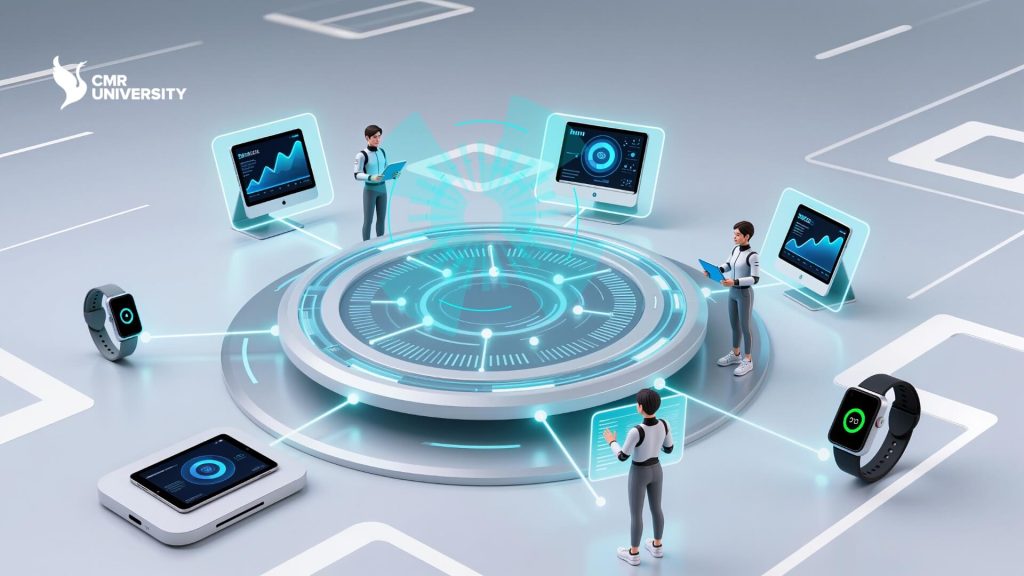What is the duration of the BTech course at CMR University?
Four years
What is the admission process for the BTech course at CMR University?
Written test and interview
What is the eligibility criteria for the BTech course at CMR University?
10+2 with physics, chemistry, and mathematics as subjects and a minimum of 45% marks in 10+2. Other equivalent qualifications may also be considered.
Does the BTech course at CMR University offer any practical training or internship opportunities?
Yes, the BTech course at CMR University provides students with practical training and internship opportunities as part of the curriculum.
What is the difference between Computer Engineering and Information Technology?
Computer engineering focuses on the hardware and software development of the system, whereas Information Technology keeps the systems that were built by somebody else running. When it comes to degree comparison, a Computer engineering degree is more hard-earned than an Information Technology degree. In CE, you will learn about the different OS, database management, programming languages, etc. Information Technology mostly covers networking and a few specializations overlapping CE.
What are the specializations available under Information Technology?
Information Technology has seen a paradigm shift in recent years, especially with the move of the world toward a digital era. The demand for IT professionals is seeing an upward trend. There are several specializations available under Information Technology. A few of them are enlisted below:
- AI & ML (Artificial Intelligence & Machine Learning)
- Blockchain
- Cloud Computing
- Cyber Security
- Data Science
- Data Visualization
- DevOps
- Full-stack
- IoT (Internet of Things)
- Selenium
What do you study in BTech information technology?
The syllabus of BTech IT is vast, covering a plethora of subjects. It is equipped to give the students a theoretical as well as a practical outlook on the ever-growing industry demands of the career. The bachelor’s degree course is generally for four years, but you can extend it upto six years. It is used to study computer-based systems and further probe into the hardware and software systems of the computer.
What is the scope of information technology?
IT courses can be pursued either as a diploma, undergraduate or a post-graduate course or all together. The courses give a vast spectrum of knowledge on how to solve problems in real-time via computer applications. IT is in demand and secures a high paying jobs in the top companies. Upon the completion of the course, you can work as a junior programmer, web developer, system administrator or system engineer.
How many types of IT courses are there?
There are many types of IT courses available to the pursuant. They include Java programming, core concepts of database management systems, algorithm analysis, information security, ERP, e-commerce, computer networking, cloud computing, software engineering and several different operating systems-related subjects. The courses offered are as follows:
- Basics of Electronics
- Computer Graphics and Simulation
- Computer Languages
- Concepts of Database
- Data Mining and Data Warehousing
- Engineering Mathematics
- Introduction to Microprocessor
- Introduction to Web Technology
- Operating Systems
- Software Project Management





























